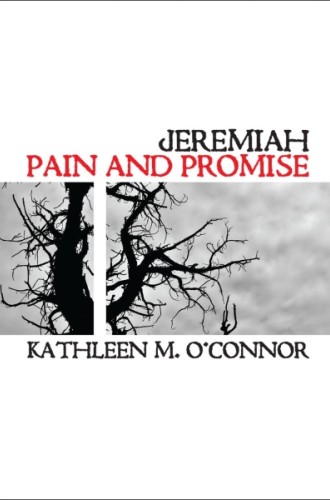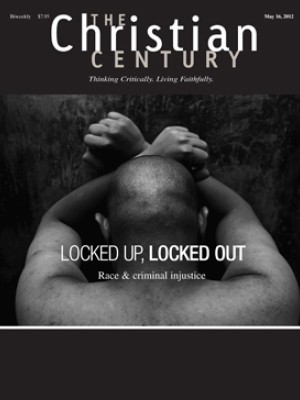Jeremiah, by Kathleen M. O’Connor
It is a truism that the questions we ask of the biblical text determine in some great measure what the text will yield. Or in more critical terms, it matters decisively which allied discipline scripture is read through. For a very long time it has been universally accepted that the proper allied discipline for scripture interpretation is history, and history of the most positivistic German kind. Predictably that alliance has focused interpretation on the questions “What happened?” or “Could it have happened?” Many quarrels about the Bible, and historical-critical solutions to those quarrels, have turned on those questions.
Only since the last decades of the 20th century has the hegemony of history been challenged and broken, largely through the work of liberationists, feminists and, more recently, postcolonial interpreters. In that recent time, the allied disciplines that have given method and theory for interpretation are the social sciences, especially sociology and anthropology. Given this shift in allied disciplines, the question has shifted to: “What is the text doing?” It is now widely recognized that the texts are not reports (as in “What happened?”), nor are they innocent theological representations. They are, rather, acts of leverage that intend to do something in terms of social power, social ideology and social meaning.
Read our latest issue or browse back issues.
Amid the broad array of social scientific perspectives, Kathleen O’Connor appeals in this extraordinary book to trauma and disaster studies, which now have a well-defined body of learning about the characteristic ways in which people respond to disaster. The quartet of topics that O’Connor takes from that body of theory concerns fragmented memories of violence, a breakdown of language that destroys the capacity to speak meaningfully about the disaster, psychic numbness and a loss of emotional capacity, and loss of confidence in meaningful structures related to God, the world and other people. These responses recur in disasters that “overwhelm nearly everything.”
O’Connor has delved deeply into this body of material and brings it to her exposition of the book of Jeremiah. She has spent her formidable academic career on Jeremiah and its matrix of grief, notably in her book Lamentations and the Tears of the World (2002). She has been preoccupied with the crisis of loss in the Old Testament—with the destruction of Jerusalem, the temple, the monarchy and the city, and finally with the undoing of the unconditional, inviolate covenant that YHWH made with David. That crisis is decisive for the Old Testament and certainly for the book of Jeremiah.
O’Connor’s daringly imaginative rereading of the book of Jeremiah according to studies of trauma and disaster shows that the book exhibits a post–587 BCE community of Israel that has been displaced and is experiencing the classic accents of trauma. O’Connor employs images and literary devices such as “the family undone” through adultery, alienation and divorce; “war poems” that conjure the terror of brutal invasion; and “weeping poems” of loss and death.
The book of Jeremiah pushes trauma to extremity because God figures largely in the text. Dismay, therefore, is more than a conventional human response. The distinctive Presence in the text and in the disaster permits and requires O’Connor to break new ground that is theologically jarring and pastorally compelling. Her conclusion is that the book of Jeremiah is a “survival manual” about how to maintain life, faith and hope in a context of deep loss. YHWH, the God implicated in the disaster, is both a resource for survival and at the same time one of those who must struggle for survival—in YHWH’s case, survival as the God of Israel and the Lord of history.
Most daring and bracing are O’Connor’s two chapters on war and grief. In her exposition of war poems, she comes inevitably to the “language of rape,” as we always do with war. YHWH has brutalized the city and its inhabitants in gross and cruel ways. This outrageous language (which she accepts as outrageous) not only gives vivid expression to suffering and loss. More than that, it attests to the fearful power of YHWH, who, it turns out, is not a wimp who has been defeated by the Babylonian gods:
Judah’s God is powerful, active, and present, lord of the world and not a defeated lesser being. To make God the active agent of Judah’s humiliation is to insist that Babylonian deities have not triumphed, nor has ungoverned Fate propelled events.
The poems thus break the muteness of impotence and provide a coherent narrative of meaning, albeit one that is offensive in a way commensurate with the offense of the event. O’Connor makes interpretive sense out of the brutalizing rhetoric in a fresh way that is pastorally restorative and theologically affirmative.
In her chapter on weeping poems, both Israel and God are reduced to psychic numbness. Both are invited to tears, and both are so frozen in dismay that the tears will not come. In the poems of chapters 8 and 9 of Jeremiah, God wants to weep and has “become unhinged” like other survivors of the disaster: “God’s own desire calls them to weep for the mountain of losses too immense to imagine.” The poems, at God’s behest, feature the skilled “mourning women” to give voice to grief. Now the poems function as one of these skilled women, for through their cadences Israel is moved to grieve with tears it could not otherwise generate.
O’Connor’s book moves on through the complexity of the book of Jeremiah, through the biography of the poet, and eventually to hope for a new historical possibility for Judaism that depends upon both the fidelity of YHWH and the defeat of the empire, both of which are voiced in this literature. That hope is permitted and made possible only by the recovery of language, the voicing of memory, the breaking of numbness, and the brutalizing candor that enables relinquishment of the despair that paralyzes. All of that is the work of this poetry.
I have been O’Connor’s longtime colleague at Columbia Theological Seminary, and over time we have had many exchanges about Jeremiah and the new ground that she has been breaking. She has found my exposition of the bullying God of the prophets unconvincing. In her earlier book she concluded about that exposition of God, “If God really is violent and abusive as well as gracious and merciful, I want nothing to do with religion. If God’s character is both abusive and merciful, as the biblical texts maintain, then there is nowhere for the abused to turn.”
I had anticipated that perhaps in this book O’Connor would stay at the level of social performance and keep a distance from theological claims and from the legitimacy of this violent, abusive God. Her study, however, has led her to a judgment that the brutality of this God is crucial for the way in which the text practices honesty and then hope. Her final sentences are a vigorous theological statement, making clear that she has not kept distance from theological claims:
This God is a work of art, an expression of divine involvement when we are stuck in the mud, lost in intense pain, wandering with no compass. Above all, . . . what drives this God is relentless, passionate desire for relationship with this people. Jeremiah’s portrait of God in its many dimensions stammers toward the unsayable. God receives many names, many characteristics in this book, yet none can satisfy, none can fully convey the experience of the divine. Jeremiah’s God is the living God.
I do not imagine that I have in any way converted O’Connor or even informed her reasoning. Rather, her study has drawn her to depths that are well beyond where I had been. The outcome is a book that is a game changer in interpretation, a book to which attention must be paid. O’Connor is a master phrase maker and a provider of hard-won, innocent-looking footnotes.
Clearly, we now live in a society of deep disaster in which U.S. exceptionalism is as much in jeopardy as was the chosenness of ancient Israel. This book makes clear that in such a crisis, the agency of God matters—as art, as rhetoric and as truth-telling. O’Connor shows how ancient pastoral imagination pushed beyond ideologies of exceptionalism and beyond studied self-sufficiency. The book leaves me grateful and deeply moved by an exposition of suffering holiness with a reach toward newness.







